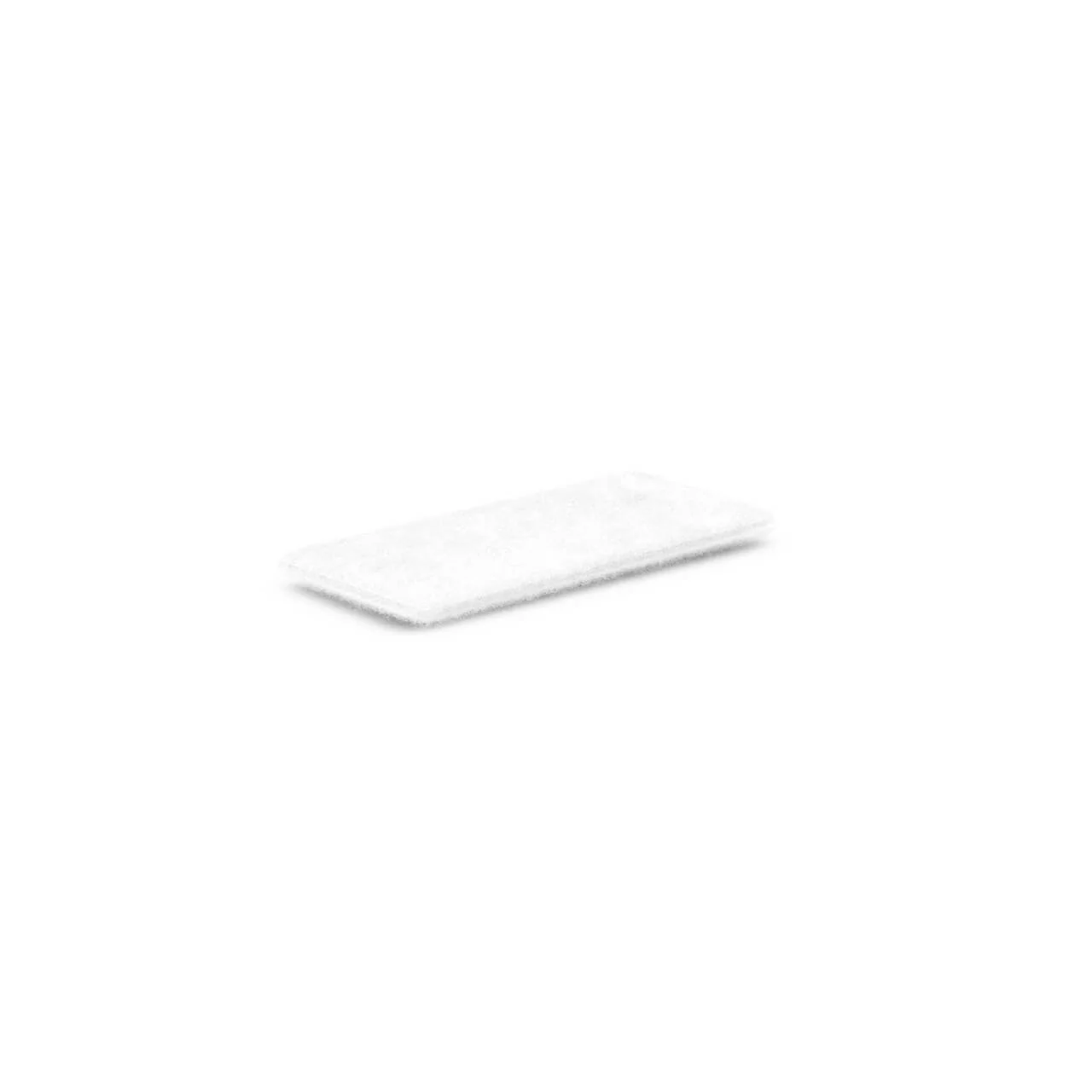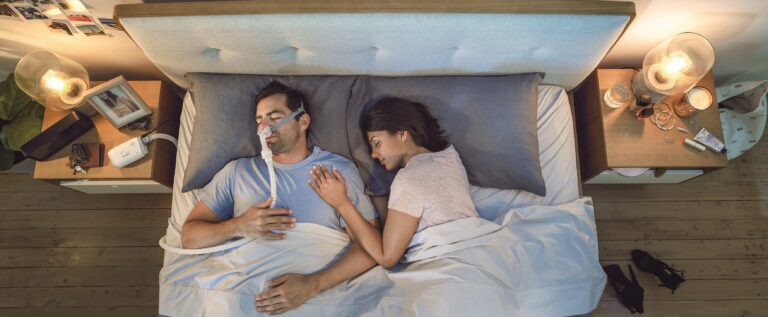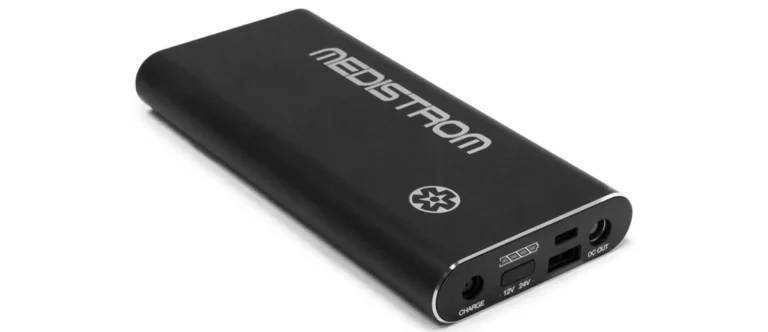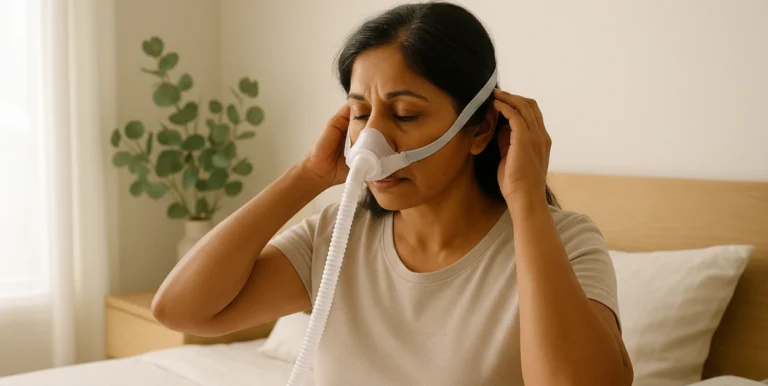Your cart is currently empty!
Prefer to just call? (07) 3472 6421
Do CPAP Filters Need to Be Replaced Regularly? Let’s Discuss

Sleep is meant to recharge us – not leave us groggy and frustrated by morning. But clogged CPAP filters can quietly disrupt that, causing sleepless nights and hazy mornings without warning. That’s the problem, and regular filter changes are the solution.
It’s easy to forget something so small, especially with hectic days and restless nights. But over time, dirty filters can irritate your throat, reduce machine performance, and even invite allergens back into your breathing space.
At Sleep Warehouse, we get how much clean, uninterrupted sleep matters – especially if you’re already running on empty. We help you stay on track with CPAP care, so sleep becomes comforting again.
Understanding the Function of CPAP Filters
The role of CPAP filters in therapy
Behind every restful night lies one small but mighty hero – a CPAP filter. It quietly works to keep your airflow pure. Without it, you’re just breathing in dust, debris, and allergens you’re meant to avoid.
Clean filters help stop throat irritation, unwanted coughing, or scratchiness that ruins deep sleep. At Sleep Warehouse, we see clean filters as peace-of-mind add-ons, contributing directly to restful therapy and happier mornings.
Types of CPAP filters
Choosing between disposable and reusable filters depends on your lifestyle and therapy needs. Disposable filters – like our AirSense 11 filters – are perfect for no-fuss replacement. Reusable ones suit users eager for budget-friendly, long-term care.
Some machines also allow inline bacteria filters, adding another layer for those with sensitive lungs or lowered immunity. Each filter type serves a purpose in keeping therapy breathably safe.
How CPAP filters interact with other components
Your filter is just one part of the full system. It connects closely with the tubing, humidifier, and machine itself. A clean filter supports the entire setup, keeping blockages and gunk from spreading.
It even helps extend the life of your humidifier and tubing by preventing fine dust from reaching their surfaces. That’s less cleaning, fewer replacements, and smoother nights for all.
Why Replacing CPAP Filters Regularly Matters
Effects on therapy effectiveness and air quality
A clogged filter chokes the very airflow you’re depending on. You might feel like your pressure is off or your breathing feels heavier through the night.
Therapy becomes less effective, and worse – air quality dips, letting irritants back into your lungs. Clean filters mean clean, steady airflow and a more restful sleep routine night after night.
Health implications of neglected filter replacement
Old filters collect more than just dust. Over time, they may grow mould or bacteria inside them – threatening your respiratory tract.
Breathing through such filters can worsen asthma, trigger allergies, or even cause infections. At Sleep Warehouse, we’ve seen how prevention – via regular changes – is far better than correction.
Signs your CPAP filter needs replacing
If your filter’s turned grey, has dust patches, or smells musty during your nightly session – it’s well past due. That odour? It’s a warning sign of overload.
Discoloured filters or surfaces covered in debris significantly hinder air purity. Just a quick glance while unhooking the tubing can be enough to spot a problem early.
When and How Often to Replace CPAP Filters
General replacement guidelines
Most disposable CPAP filters should be replaced every two months. But if you’re living with pets, near highways, or in dusty areas? Sooner is best.
Reusable filters might last longer, but they still need a schedule too. Checking monthly gives you a good chance to stay ahead of any issues before they interfere with your breathing therapy.
Maximising your CPAP filter lifespan
A cleaner room helps your filter do its job longer. Simple moves like using an air purifier or dusting weekly go a long way.
Also, store your device away from open windows or the floor to avoid dirt buildup. These small changes help filters last and cut down on over-replacement costs.
Manufacturer recommendations
Every machine has its own rhythm, and so do its filters. ResMed recommends replacing AirSense and AirMini filters every 1–2 months, depending on usage.
Your user manual often gives a brand-clear timeline. At Sleep Warehouse, we advise checking your model to match genuine replacement times – it keeps therapy smooth and safe.
How to Change and Care for Your CPAP Filter
Simple steps for replacing a filter
Swapping filters doesn’t need to be technical. Just locate the filter slot – usually at the back of your device – remove the used one gently, and drop in a new one.
Make sure the filter edges sit flat without folding. Close the compartment tightly and you’re done. It’s a minute-long task that sets you up for weeks of better breathing.
Mistakes to avoid
Reusing disposable filters – even once – defeats their purpose. Dirt and moisture get trapped and continue circulating right back into your therapy.
Using non-brand filters or poorly-fitted third-party parts also causes airflow issues. Stick with authorised supplies like ours – built to fit and function as expected.
Cleaning reusable filters properly
Rinse the reusable filter with warm water under a gentle stream. Let it sit flat and dry fully before reinserting it – never rush this step.
Leave out soaps or alcohol-based cleaners. These break down filter fibres, ruining their effectiveness. Just warm water and care are all that’s needed.
Choosing the Right Filter Type
Compatibility with your machine model
Every CPAP machine works best when paired with the matching filter. We stock filters for AirSense 10, AirSense 11, and ResMed S9 – all designed to fit correctly.
Always double-check the model name or match dimensions to your machine. Ill-fitting filters slide around and underperform. If unsure, our expert team is just a call or email away.
Disposable filters vs reusable filters
Disposable filters are quick, hygienic, and convenient – perfect if you’re limited on time. Reusable options may save some dollars, though they demand more maintenance.
For those sensitive to allergens, hypoallergenic disposables catch even the tiniest irritants. Everyone’s needs are different, so we’re happy to help you sort out which suits you best.
Where to purchase quality CPAP filters
At Supply Warehouse, we supply both single and bulk packs for all common ResMed models. Whether it’s a two-pack or a 50-pack box – you’ll find dependable stock at Sleep Warehouse.
Insurance may cover filter costs, depending on your sleep therapy plan. We recommend checking your cover regularly – it can ease expenses, especially with frequent replacements.
Ensuring Long-Term CPAP Machine Efficiency
Supporting your machine’s performance
A running machine is only as strong as its cleanest part. Replace tubing, humidifier chambers, and masks on schedule to prevent breakdowns.
During weekly wipes and filter checks, give every component a quick once-over to catch small issues before they grow into major disruptions.
Keeping your therapy effective over time
Stick to a routine filter and machine care calendar. Mark dates or use tools like ResMed MyAir that remind you when it’s time to change parts.
Therapy stays consistent when your equipment is performing day-after-day, without hidden snags or slow pressure loss.
Coordinating with ongoing sleep therapy goals
Your sleep goals go beyond just using the machine – they’re about feeling better during your day. Meet with a sleep specialist if breathing feels harder than before.
We’re here to keep you aligned with every step – from setup to reassessment – to help you breathe deeply and restfully night after night.
Frequently Asked Questions
How do I know when my filter is worn out?
If your CPAP filter is turning brown, grey, or emitting strange smells, it’s time to replace it. Visible lint or blocked airflow are giveaways too.
Can insurance cover CPAP filter replacement?
Yes, many Australian insurance providers include CPAP filters under sleep therapy equipment. Check with your plan or contact us for assistance in claiming.
Why is my CPAP filter getting dirty so quickly?
Dusty spaces, smokers in the home, pets, or open windows can all make filters clog faster. Cleaning your bedroom helps filters last longer.
What should I do with used filters after replacement?
Wrap used filters in tissue or a sealed bag before tossing them in the bin. They’re not recyclable, but proper disposal keeps bacteria from spreading.
How do I maximise the life of my CPAP filters?
Clean rooms, regular hourly ventilation, and storing your machine off the floor will all help. Avoiding damp spaces is especially important.
What happens if I don’t replace my CPAP filter regularly?
Your filter blocks air, weakening pressure delivery and possibly letting bacteria or allergens back into your lungs. Missed changes can lead to discomfort or even illness.
Breathe Easy, Sleep Better – Don’t Let the Small Things Slip
Fresh air at night should be silent, smooth, and effortless – anything less starts affecting how your body rests. When breathing feels off or forced, the simple act of sleeping becomes a low-key battle.
Replacing the filter regularly keeps airflow steady and every breath cleaner. It’s an easy habit that brings lasting calm to your face at night, especially when you need to sleep the most.
At Sleep Warehouse, we’re committed to helping you reclaim tranquility. We offer expert guidance, quality CPAP products, and ongoing support to create the calm sleep environment you deserve.
If you’re unsure where to start, reach out today. We can help you choose the right filter, mask, or accessories to improve your breathing tonight.
Breathe easier. Sleep deeper. Let’s begin.
ABOUT AUTHOR



Leave a Reply
You must be logged in to post a comment.